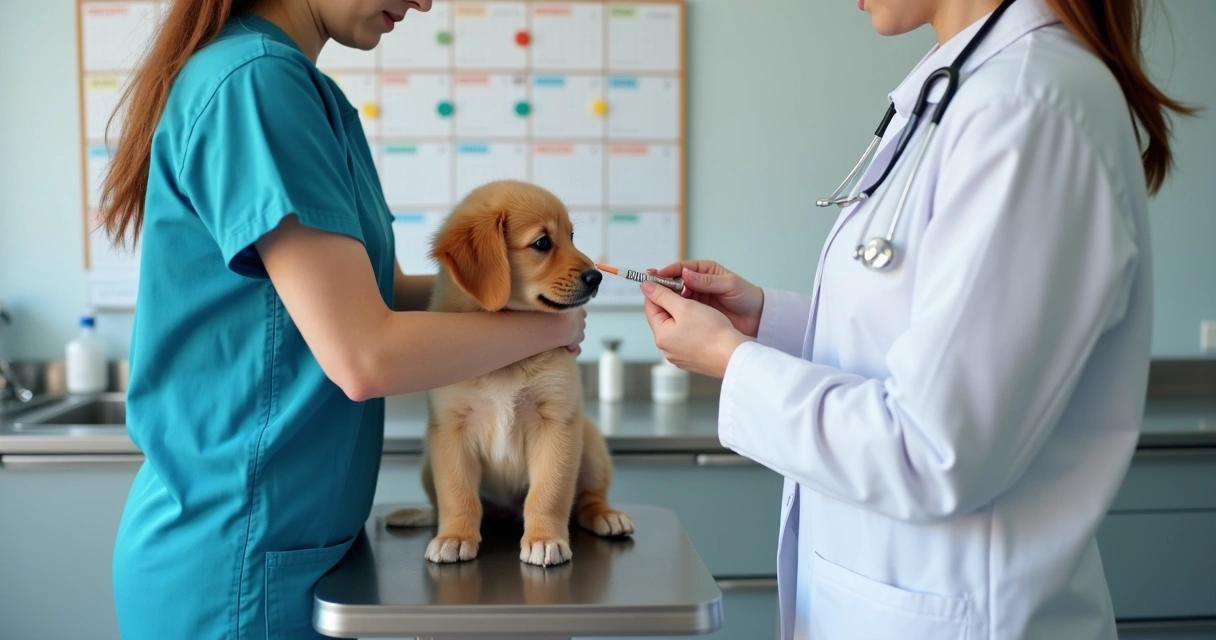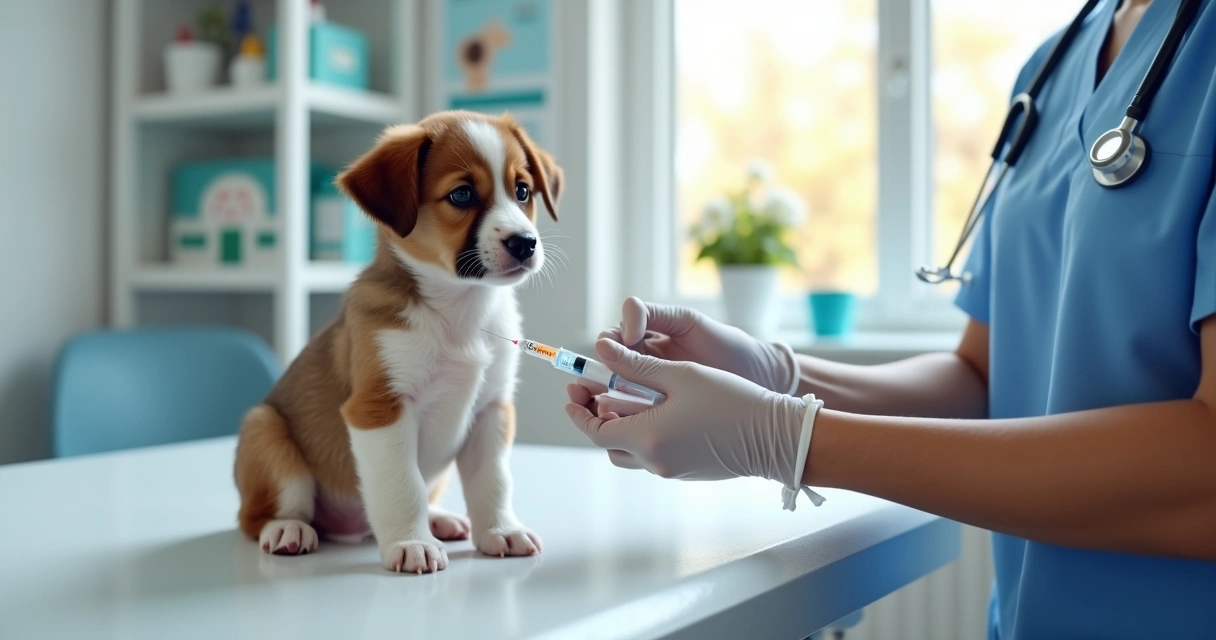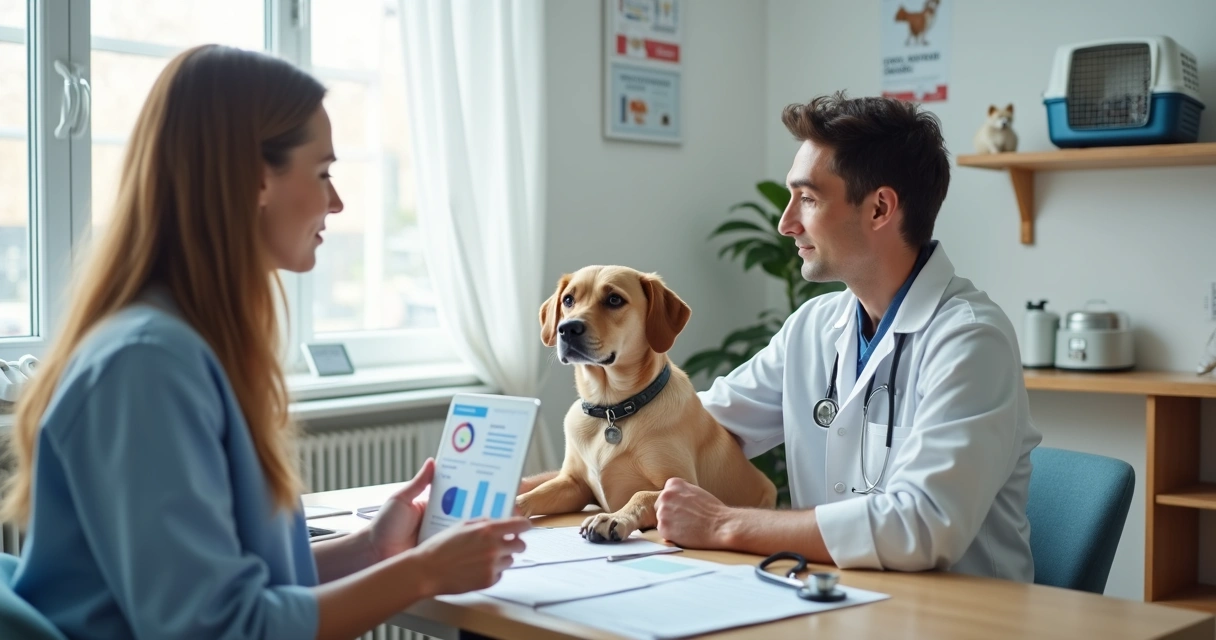The first time a puppy curls into your lap, the future feels wide open. You picture parks, road trips, lazy Sundays. Then the calendar hits and you realize there is a health plan to keep. Shots. Checkups. Tiny steps that add up. I have walked that path with more than one wiggly pup, and I still get a little nervous. It is normal. The plan is simple once you see it laid out.
Healthy habits start early.
Why vaccines matter more than you think
Puppies are born with some protection from their mom. Those early antibodies fade in the first months. That is why one shot alone does not do the job. Your vet sets a series to build a steady shield as those early antibodies drop off. The WSAVA vaccination guidelines lay out a clear path that many vets follow, and it is simple to track if you use a calendar and a fridge magnet. I do both, because I forget things on busy weeks.
The core vaccine timeline
Core vaccines protect against the biggest risks: distemper, parvovirus, and adenovirus. Rabies is also a core vaccine and is required by law in many places.
- 6 to 8 weeks: First core shot, often given as a combo like DHPP. A general exam and a fecal test are common at this visit.
- 8 to 12 weeks: Second core shot. Keep social time limited to known, healthy dogs and clean spaces.
- 12 to 16 weeks: Third core shot. Rabies is given once at this stage in many regions. Check your local rules for timing.
- 16 to 20 weeks: Some puppies need an extra core dose if the series started very young.
- 6 or 12 months: A booster to lock in lasting immunity, which the WSAVA vaccination guidelines also recommend.
Between visits, keep play clean and calm. If your pup attends a safe, supervised space like day camp, make sure their records match the schedule above.

What about non-core vaccines
Some shots depend on lifestyle and location. They are helpful if your puppy will hike, swim, or spend time around lots of dogs.
- Leptospirosis: For dogs that drink from puddles or streams, or live where wildlife is common.
- Bordetella: Often needed for group settings like daycare and boarding, since it helps reduce kennel cough risk.
- Canine influenza: Consider if your area sees outbreaks or your dog travels a lot.
- Lyme: For tick-heavy regions and outdoor adventures.
At Dogtown in Gloucester, MA, group play is supervised and sized by temperament, and up-to-date records are part of that promise. If you are planning day camp or dog daycare, you will get guidance on what is required and what is simply smart.
The socialization window
From about 3 to 14 weeks, puppies are open to new sights and sounds. This window does not last. It feels short because it is. Offer gentle, safe exposure to people, textures, and noises. Keep it structured and kind. Short visits to a calm lobby, a carried walk in town, a few minutes near a running vacuum. Then a cuddle break. It is a rhythm.
Good manners start here too. Short sessions work best. If you want help shaping the basics, the team at Dogtown offers positive training that fits young attention spans.
Monthly health milestones
Every month has a small win. Some are quiet. Some feel huge.
- Weeks 6 to 8: First vet visit, first core shot, parasite check, start a weight chart. Microchipping can be done now or later.
- Weeks 8 to 12: Second core shot. Begin gentle social time. Nail trims, soft brushing, and teeth wipes become routine. If you want help, Dogtown’s grooming services can keep nails and coats in shape.
- Weeks 12 to 16: Third core shot and likely rabies. Loose leash walking, sit, down, and name response are on track. Start short car rides that end in a treat and not always a vet visit.
- 4 to 6 months: Teething winds down. Keep chew choices safe. Discuss spay or neuter timing with your vet, since breed, size, and lifestyle play a role.
- 6 to 12 months: Booster visit. Growth slows. Keep body condition lean. Strong habits now make adult life calm and easy. If you need a trusted place for overnights, Dogtown’s boarding pairs rest time with kind care.

Normal reactions vs warning signs
After shots, mild sleepiness, a small lump at the injection site, or a light fever can happen for a day. Offer water and a quiet nap zone. Things that need a call to the vet include facial swelling, hives, vomiting, trouble breathing, collapse, or a fever that lasts more than a day. I would rather make a cautious call than wait and wonder.
Keeping records and staying on track
Make a simple folder. Add vaccine dates, lot numbers, weight, and notes about any mild reaction. Use phone reminders for the next visit. If your puppy joins group play or classes, keep a copy ready for staff. Dogtown provides daily feedback during care, which makes it easier to spot small changes early.
Wrapping it all together
Puppy health is a series of tiny steps that lead to a big, happy life. Vaccines build a shield. Social time builds confidence. Clean habits keep the shine. If you want a partner who cares about both joy and safety, visit Dogtown in Gloucester. Book a free pre-enrollment assessment, try a day at day camp, set up training, or refresh with grooming. Your pup plays, learns, and rests while you get peace of mind. That is a fair trade.
Frequently asked questions
What vaccinations does my puppy need?
Core shots cover distemper, parvovirus, and adenovirus. Rabies is also required by law in many places. Non-core options depend on risk and include leptospirosis, Bordetella, canine influenza, and Lyme. Your vet will shape the plan, and group settings like Dogtown’s daycare may request certain non-core vaccines for shared safety.
When should puppies get their first shots?
Most start at 6 to 8 weeks, with boosters every 2 to 4 weeks until at least 16 weeks, and a booster again at 6 or 12 months. This schedule follows the approach outlined in the WSAVA vaccination guidelines.
How much do puppy vaccinations cost?
Costs vary by region, vaccine type, and exam fees. Many families spend a few hundred dollars in the first year for exams, core shots, and any lifestyle vaccines. Ask for an itemized plan at the first visit so you can budget across the series.
How to know if puppy is healthy?
Look for bright eyes, a clean nose, pink gums, steady weight gain, normal stools, and playful interest without constant fatigue. A shiny coat and good appetite help too. If you notice vomiting, diarrhea, coughing, heavy scratching, or a sudden mood shift, schedule a checkup.
What are key puppy health milestones?
Early vet visit at 6 to 8 weeks, core series through 16 weeks, rabies by local law, booster at 6 to 12 months, socialization by 14 weeks, teething through about 6 months, and a talk about spay or neuter timing. Layer in nail care, brushing, and short training sessions. Dogtown can help with safe social play and kind training support.





